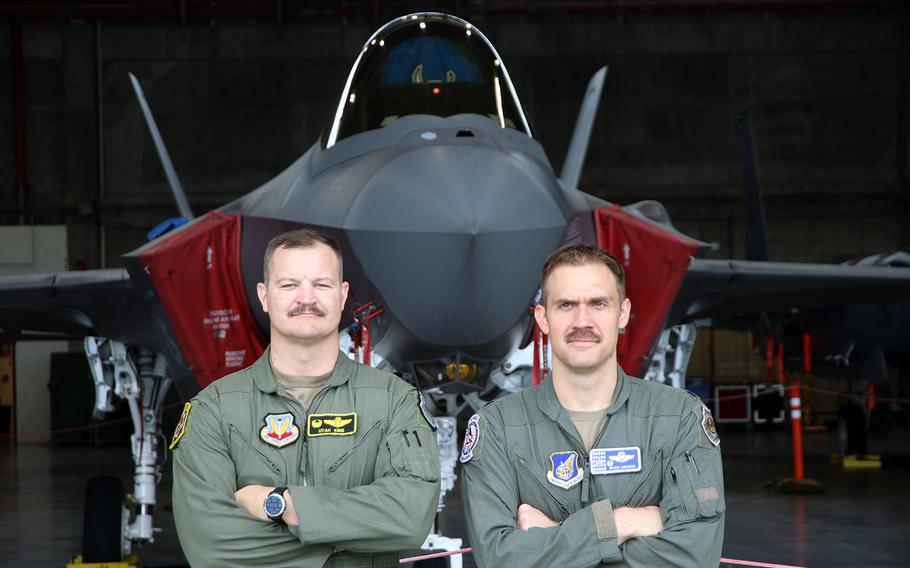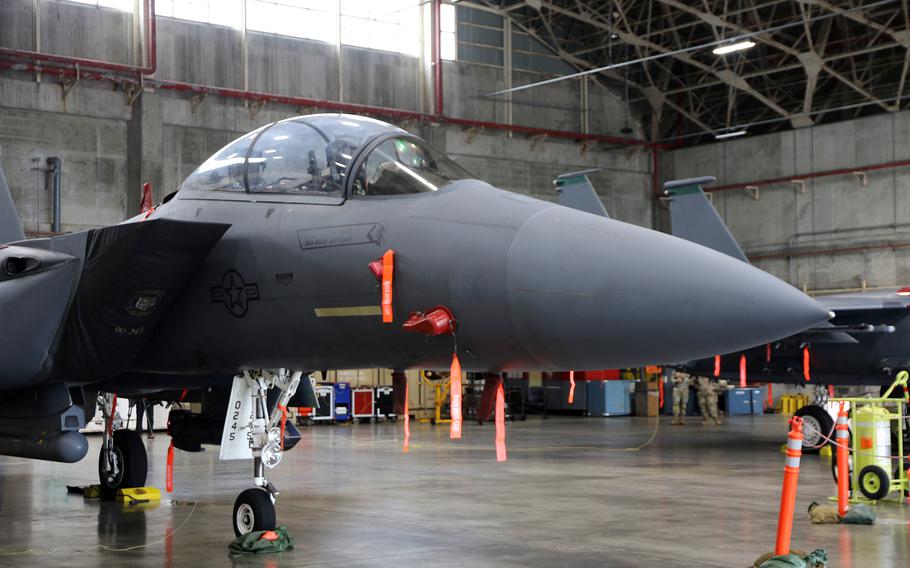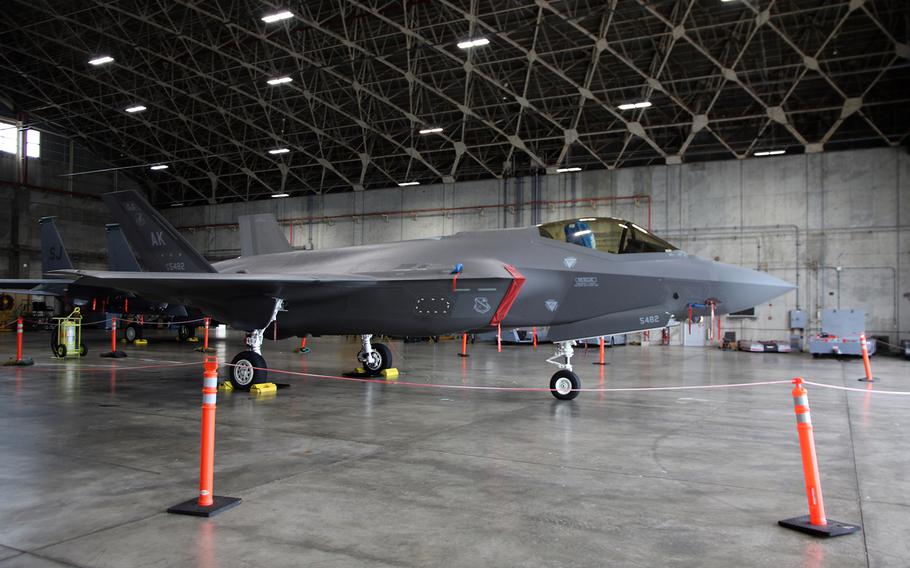
Lt. Col. Jeremiah King, left, commander of the 391st Fighter Squadron, and Lt. Col. Michael Mickus, commander of the 355th Fighter Squadron, pose with an F-35A Lightning II stealth fighter deployed temporarily to Kadena Air Base, Okinawa, Friday, June 16, 2023. (Matthew M. Burke/Stars and Stripes)
KADENA AIR BASE, Okinawa — Lt. Col. Michael Mickus, commander of the 355th Fighter Squadron, dismissed fears Friday that rotating U.S. fighters through Okinawa diminishes the U.S. capacity to wage an air war in the Western Pacific.
Mickus, a pilot, stood next to an F-35A Lightning II stealth fighter on display for visiting reporters, most of them Japanese, at Kadena, the U.S. fighter hub on Okinawa.
“We’ve deployed out here our best fighters, so I think that shows our commitment to peace and stability within the region,” he said.
The Air Force is six months into a two-year plan to replace 48 aging F-15C/D fighters of the 44th and 67th Fighter Squadrons with rotating squadrons of more modern aircraft, including the fifth-generation F-35A and F-22 Raptors, F-15E Strike Eagles and F-16 Fighting Falcons.

An F-15E Strike Eagle, temporarily deployed from the 391st Fighter Squadron at Mountain Home Air Force Base, Idaho, rests in a hangar at Kadena Air Base, Okinawa, Friday, June 16, 2023. (Matthew M. Burke/Stars and Stripes)
The F-35s and F-15s are taking their turn on the Kadena flight line.
The F-35s arrived March 28 from Eielson Air Force Base, Alaska. The F-15s arrived between April and June from the 336th Fighter Squadron at Seymour Johnson Air Force Base, N.C., and the 391st Fighter Squadron at Mountain Home Air Force Base, Idaho.
In October, four Republicans in Congress — Sens. Marco Rubio of Florida and Bill Hagerty of Tennessee, and Reps. Mike Gallagher of Wisconsin and Mike McCaul of Texas — wrote a letter to Defense Secretary Lloyd Austin questioning the plan’s wisdom.
“We believe that DOD’s plans to replace permanently-based fighters with rotational forces will lead to a tangible reduction in American forward combat power in the Indo-Pacific,” the letter states, in part.

An F-35A Lightning II stealth fighter, temporarily deployed from the 355th Fighter Squadron at Eielson Air Force Base, Alaska, sits in a hangar at Kadena Air Base, Okinawa, Friday, June 16, 2023. (Matthew M. Burke/Stars and Stripes)
On Friday, Lt. Col. Jeremiah King, commander of the 391st, took questions alongside Mickus. The two explained the basic concepts behind their units and their aircraft.
“The F-35’s primary mission set is the suppression of enemy air defense,” Mickus said. “We find and hunt surface-to-air missile sites.”
The F-15s specialize in air intercepts, King said. Both jets also escort other aircraft to their targets, Mickus added.
"We are determined to pursue peace first,” Mickus said, “but, if necessary, prevail in combat.”